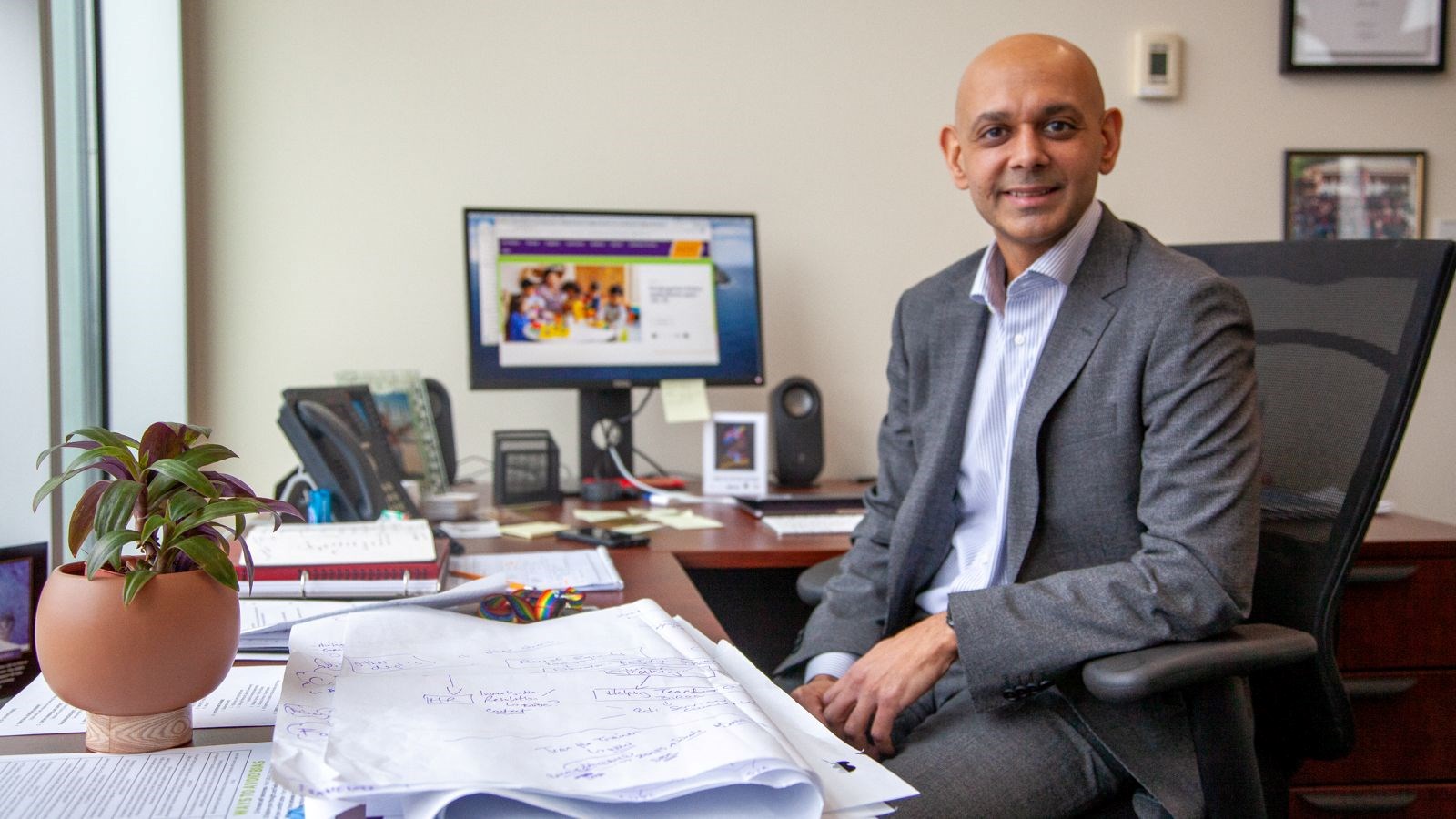Establishing racial equity in Surrey Schools: ‘It’s going to be a learning journey,’ says Director of Instruction JB Mahli
 JB Mahli is the new Director of Instruction for the district's Racial Equity department, established to provide education, training and resources to address issues of racism and discrimination in the district. (Photo by Jacob Zinn)
JB Mahli is the new Director of Instruction for the district's Racial Equity department, established to provide education, training and resources to address issues of racism and discrimination in the district. (Photo by Jacob Zinn)
The creation of the district’s new Racial Equity department is the latest step toward eradicating racism and discrimination in our schools, while further creating safe learning environments for all BIPOC students and staff.
Headed by Director of Instruction JB Mahli, one of the department’s key objectives is to work with schools and district staff to organize education, training, resources and tools to address issues of racism and appropriately navigate instances of prejudice and discrimination. Approved by the Surrey Board of Education this past September, the department was established on the heels of an environmental assessment on racial equity that included extensive consultation with school communities through 39 listening circles where they shared their stories and experiences with racism.
“The listening circles were very insightful and powerful, and allowed BIPOC students, staff and community members to share their stories, allowing our district and board to have those experiences at the forefront as we work to address differences between the lived experiences of racialized people and the goals and values we have with education for all in Surrey,” said Mahli. “We will put a racial equity lens on all the work that we do as an organization and see if we are meeting our values that we have as a district of schools in terms of racial equity.”
Mahli has a lengthy history with Surrey Schools, having spent the entirety of his 20-year teaching career in Surrey, beginning with his practicum and teaching career at Princess Margaret Secondary in 2003. In 2013, he simultaneously worked as a social studies helping teacher and teacher at Princess Margaret before becoming vice-principal at Semiahmoo Secondary for four-and-a-half years, followed by opening École Salish Secondary as a vice-principal and later joining North Surrey Secondary as a principal.
“School has always been a place for learning about new opportunities and different perspectives, and that has never left me,” he said.
Throughout his different teaching and administrative roles, Mahli said he has worked with students to address racial discrimination in classrooms, playgrounds and school hallways, as well as online via social media, and is aware of ongoing issues with racism in schools today.
“It’s difficult to hear those stories from students who feel they’ve been subject to racist comments and actions in their schools and community,” he said. “Schools have to be a safe space for all students and staff, where they feel safe to talk to an adult within a school and feel heard and supported.”
Now, in leading the district toward racial equity, he sees his new position as a broader opportunity to enact significant change in our schools through training and leadership roles for staff, diversity in the workplace and ongoing conversations with students and staff to break down barriers for racialized people. He said he seeks to foster a common language for staff and students to discuss such subjects as institutionalized racism and define different forms of bias, as well as what it means to be anti-racist.
“We’ve been consistent in saying that this is the work of everyone, we have a shared responsibility in every department to look at racial equity in the work that we do,” said Mahli. “We need to have conversations about all of our practices, our policies, and how our school communities want to see their perspectives embodied within everything that we do as a district.
“It’s also important to note, many teachers are working with clubs and student unions everyday to promote anti-racist and inclusion perspectives and ways of being. These are the champions in our school district that we need to thank along the way and embrace in our journey and plans moving forward. We want students to have a sense of understanding that when an issue of racism or injustice comes up, they have adults within our organizations they can go to for resolution, support and guidance.”
To accomplish meaningful change, Mahli is tasked with developing a five-year plan by June to address racial equity, based on the recommendations from the environmental assessment. The plan will serve as a roadmap for teachers, principals and other staff to promote racial equity and cultural awareness in their schools and classrooms so that students may feel a greater sense of belonging, understanding and hope in their school communities.
“It’s going to be a learning journey for our district,” he said. “When I look at the word ‘plan,’ it’s a thoughtful, collaborative and cohesive way for us to move forward – we have five years to turn the tide and create lived experiences that really reflect who we are and embody everybody within our district.”
“It's exciting work because it’s meaningful but it’s also hard-hitting. This is a way for us to align our vision with the work and experiences of everyone, and I’m looking forward to working with our teachers, students, staff and our communities, showcasing and sharing all of the learning along the way.”

